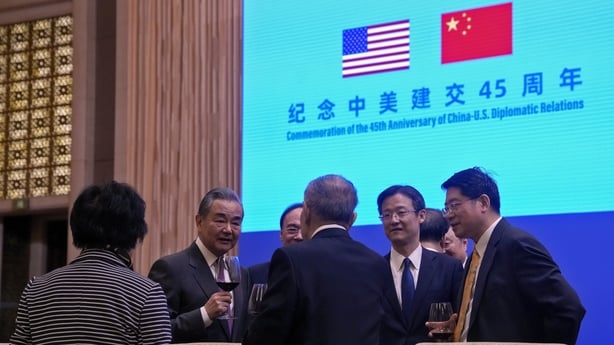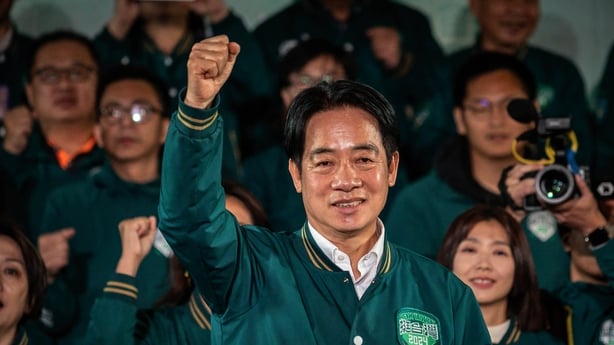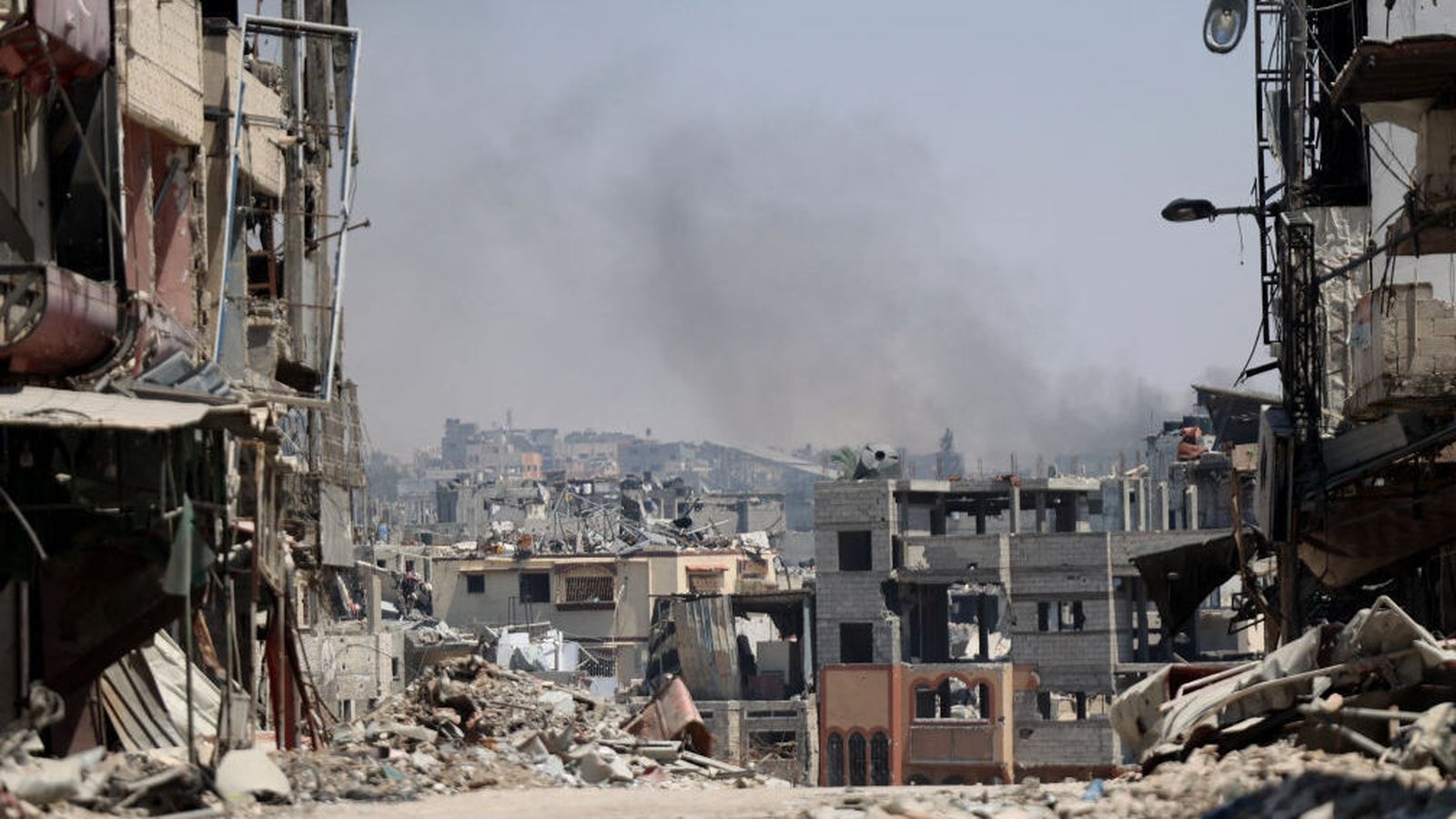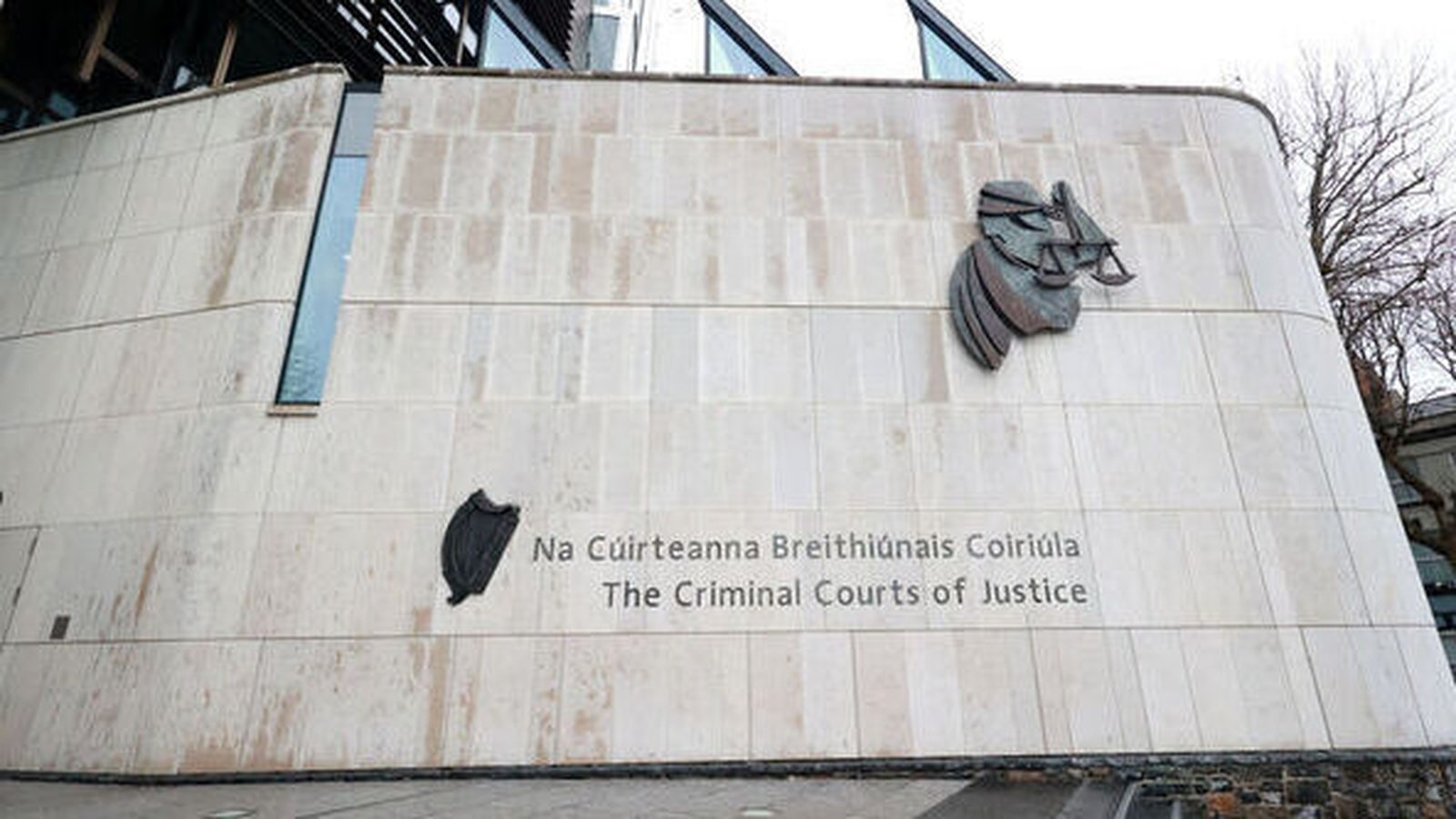What is the ‘one China policy’ and why does it matter?

The Taoiseach found himself in notoriously sensitive diplomatic territory this week, following the visit of Chinese Premier Li Qiang to Dublin.
It all started when Chinese state media quoted Leo Varadkar as telling his visitor that Ireland would “always abide by the one-China principle” and hoped that “China will achieve peaceful reunification at an early date.”
But Mr Varadkar didn’t say that, as it turned out.
When he stepped off the plane in Davos on Wednesday evening a few short hours after his lunch with Premier Li, the Taoiseach told reporters that he had “reaffirmed our policy, which is a one China policy.”
“We recognise China,” he said, “and that Taiwan is part of China and while we don’t have diplomatic or political links with Taiwan, we do have economic and cultural links”.
Policy, principle – isn’t it all the same?
It may sound like a detail, but these words carry enormous significance in international relations.
The second part of Mr Varadkar’s statement – “we recognise that Taiwan is part of China” – had some analysts scratching their heads, because that sounds more like the principle than the policy.
It could depend on whether one is referring to the People’s Republic of China or the Republic of China, one observer noted.
Confused?
Well, so is everyone else.
For diplomats at the United Nations who dare to explore the question, it’s like dancing on the head of a pin.
Most representatives here would struggle to define their own country’s ‘one China policy’ if pressed on specifics.
But one country that is quite unambiguous on this matter is China – the People’s Republic, that is.
Its ‘one China principle’ states “there is but one China in the world, Taiwan is an inalienable part of China’s territory, and the Government of the People’s Republic of China is the sole legal government representing the whole of China”.
China is insistent that the vast majority of UN states adhere to this definition and accuses anyone who deviates from it of “playing with fire”.
But a study by the Carnegie Endowment for International Peace, an American think tank, found that 51 member states officially used wording the same or similar to China’s.
And across the UN membership of 193 countries, the study found, there were ten different “one China” policies at the UN.
Most start off the same way – recognising the People’s Republic of China as the legal government of China.
But after that, things begin to diverge.
Some countries “respect” or “recognise” China’s claim over Taiwan, others “take note of it.” Others still make no mention of Taiwan’s sovereignty at all.
And there remain 12 UN member states that officially recognise the Republic of China in Taiwan as China’s legal government.
These Taiwan loyalists have dwindled over the years as the People’s Republic has gained economic and political might. The tiny Micronesian state of Nauru was the most recent to jump ship, just last Monday.
Perhaps the definition of the one China policy is so elusive largely because the architects of the most famous one, drawn up by the United States as it set about normalising relations with Beijing, intended it to be.
Not because they wanted to confuse future politicians, as other countries established diplomatic ties with Beijing and severed them with Taipei.
It was because ambiguity was the only way they could get the deal over the line – that was to officially recognise Beijing while maintaining cultural, commercial and other unofficial ties with Taiwan.
And so was constructed an artful diplomatic fudge where the two sides agreed on a form of words but walked away with quite different interpretations.
It was a moment in history that arguably paved the way for the creation of the world we live in today.

A joint communiqué between the US and the PRC in 1979 stated that the US “acknowledges the Chinese position that there is but one China and Taiwan is part of China”.
The Chinese side took “acknowledges” to mean “recognises” and indeed used the Mandarin word for “recognise” in its translation of the statement.
The American side took it to mean something like “we note your position, but we don’t necessarily endorse it.”
Other countries followed suit, coming up with their own one-China policy depending on their relations with China, Taiwan and the global context at the time they established diplomatic ties with China.
To complicate matters further, when the Nationalist government under Chiang Kai-shek ruled Taiwan, it laid claim to the whole of China, maintaining it was the sole legal government, not the Communists – hence the name “Republic of China”.
At that time, the Taiwan-based government occupied China’s seat at the United Nations.
But a 1971 General Assembly resolution ejected the representatives of Chiang Kai-shek and gave the seat to the Communist government in Beijing.
The Republic of China was thereby cast out and to this day, Taiwanese passport holders are not permitted to enter United Nations buildings.
But the current Taiwanese government continues to lobby for access to UN bodies on the basis that the General Assembly Resolution in question, number 2758, banned the Nationalist government, but it did not make any determination on the status of Taiwan.
Asked by RTÉ News for his reaction to the Taoiseach’s comment that Taiwan was part of China, Ambassador James Lee, Head of UN Affairs Task Force in New York, said that “if the “China” that the Taoiseach refers to is the “Republic of China” rather than the “People’s Republic of China,” he is absolutely right”.
“The ROC and the PRC are two separate political entities, neither one subordinate to the other and Taiwan is not, nor has it ever been, a part of the People’s Republic of China,” he said.
Beijing sees the Taiwanese authorities as dangerous secessionists and “splittists” and will not countenance Taiwan’s participation in the UN. It’s quick to rebuke any country or official that suggests it should.
Getting China’s definition of the “one China principle” and claim over Taiwan accepted into common parlance within the United Nations has been a priority for Chinese envoys.
“Over the long run, the PRC doesn’t want ambiguity, so it tries to nudge consensus towards its view,” Alex Dukalskis, director of UCD’s centre for Asia-Pacific research told RTÉ News.
Indeed, a quick search of China’s state media outlets reveals dozens of headlines quoting world leaders expressing fulsome support for China’s claim over Taiwan – in the same way Mr Varadkar was quoted in CGTN and Xinhua earlier this week.
So, what is Ireland’s one-China policy then?
A Government spokesperson told RTÉ News Ireland’s one China policy means “we do not have diplomatic relations with Taiwan. We recognise the People’s Republic of China as the legal representative of China.
This does not preclude the development of economic, cultural and people-to-people connections with Taiwan; nor the meaningful participation of Taiwan in relevant multilateral fora,” the spokesperson said.
The spokesperson added that preserving the status quo in relation to Taiwan was “critical” and that “any attempt to change the status quo by force would not be acceptable”.
Preserving the status quo may be a delicate balancing act but it’s one that has persisted for more than 50 years.

While Taiwan no longer claims to represent the whole of China, making changes to its constitution such as replacing the name “Republic of China” with “Taiwan”, could prompt Beijing to start a war, Kolas Yotaka, a spokesperson for former President Tsai Ing-Wen told RTÉ News.
Taiwan’s constitution is therefore “frozen” in time, she said.
Discussing Taiwan’s status on an international level is extremely sensitive, she added.
“Statements may unintentionally harm the right to self-determination and the physical safety of 23.5 million Taiwanese, not to mention peace in the region and beyond,” she said.
“Taiwan is definitely not part of China,” she added, “that is the reality on the ground and what Taiwanese people believe.”
It’s certainly the view of Taiwan’s DPP which won 40% of the vote in last weekend’s presidential elections, securing the pro-sovereignty party an historic third term and prompting an angry response from Beijing, featuring a series of “combat readiness patrols” by China’s military.
Congratulations extended by several countries to the new president Lai Ching-te, also drew the ire of the PRC government for interfering in China’s “internal affairs”.
Beijing branded the new president “a destroyer of peace”.
But in his victory speech, Lai spoke of the need to protect cross-Strait peace and hinted at the possibility of dialogue with China.
In the meantime, UN member states will no doubt continue dancing on the head of a pin, trying not to step on the sharp end.





